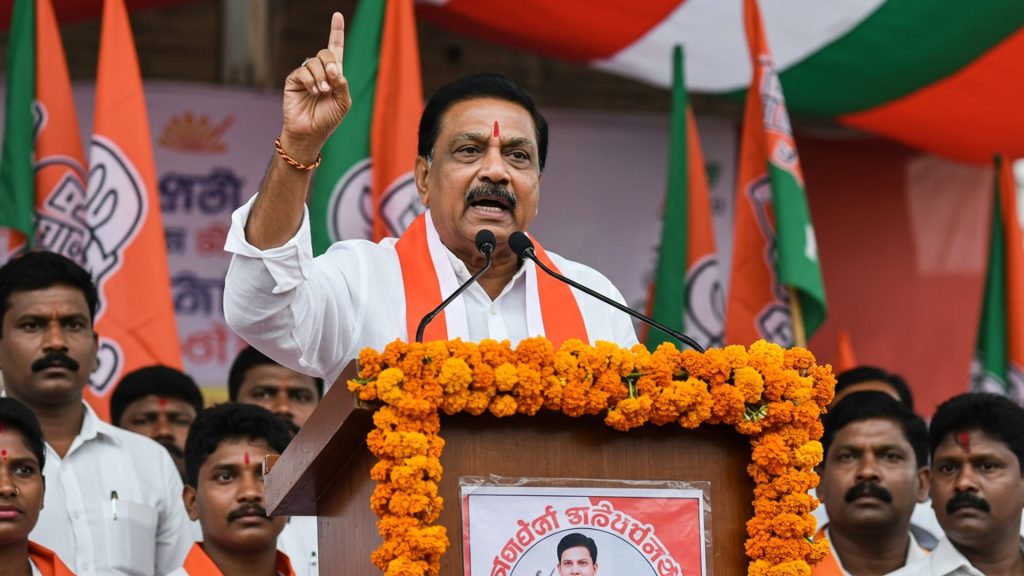The Bharat Rashtra Samithi (BRS) party is strongly criticizing the ruling Congress government in Telangana today, accusing it of failing farmers by causing a severe shortage of urea fertilizer and not keeping its promises. Farmers across the state are facing major problems getting enough urea for their crops, leading to deep worries about their harvest and overall farming future. The BRS highlights that the Congress government made many promises to farmers before coming to power, including ensuring enough fertilizer supply. these promises remain broken. This lack of essential farming materials is making an already tough situation worse for thousands of farmers, raising serious questions about the government’s ability to support the farming community.
Complaints About Urea Supply
The Bharat Rashtra Samithi (BRS) party has strongly criticized the Congress government for problems with urea supply. BRS leaders state that farmers are facing great difficulties because they cannot get enough urea, which is a key material for their crops. They claim that the current government has not managed the supply well, leading to a shortage across different parts of the state. This issue is causing worry among farmers, especially as they prepare for essential farming seasons. The BRS has highlighted long queues at fertilizer shops and farmers returning home empty-handed, which they say points to a clear failure in government planning and delivery. The BRS leaders held press conferences where they showed pictures and videos of farmers waiting for hours to buy urea. They said that many farmers have complained about the lack of timely supply, which could harm their crop yield. The opposition party stated that the government had promised to ensure easy access to all farming materials. this promise has not been kept. Farmers need urea at specific times in their crop cycle to ensure healthy growth. A delay in getting urea can lead to lower production, which directly affects the income of farming families.
Why Urea Matters for Farmers
Urea is a very vital type of fertilizer for farming. It provides nitrogen to the soil, which is a basic nutrient that plants need to grow strong and healthy. Without enough nitrogen, crops like rice, corn. cotton will not develop properly, leading to a much smaller harvest. For farmers, getting urea on time and in the right amounts is not just about growing crops; it is about their livelihood and their family’s food security. When there is a shortage of urea, farmers cannot give their plants the proper nutrition they need. This means their hard work might not result in a good crop. The lack of urea can cause serious financial problems for farmers. They invest money, time. effort into preparing their fields, buying seeds. planting crops. If they cannot get the necessary fertilizers, their entire investment might be at risk. This situation often forces farmers to buy urea from the black market at much higher prices, adding to their costs and reducing their profits. This increased cost burden makes it harder for farmers to make a living and pay back any loans they might have taken for their farming activities.
Previous Government Promises
The BRS party has also pointed out that the Congress government made several big promises to farmers before they came into power. These promises included ensuring timely and adequate supply of fertilizers, seeds. other farming necessities. The BRS claims that the Congress party had assured farmers that their needs would be a top priority and that such shortages would become a thing of the past. They had also promised to make farming more profitable and less stressful for the farming community. According to the BRS, the current urea shortage shows a clear failure to fulfill these key promises. They argue that the government has not only failed to address the existing problems but has also created new challenges for farmers by not managing the supply chain effectively. The BRS leaders reminded the public of statements made by Congress leaders during their election campaigns, where they vowed to support farmers through comprehensive agricultural policies and a strong supply network for all inputs. The BRS insists that the government must be held responsible for not living up to its word and for the difficulties now faced by farmers.
Farmers Share Their Problems
Farmers across the state are expressing deep concern and frustration over the ongoing urea shortage. Many report spending entire days waiting in lines outside government-run fertilizer depots and private shops, only to find that stocks have run out. Some farmers have traveled long distances to find urea, spending money on transport that they can ill afford. They explain that the delays in getting urea directly affect the growth cycle of their crops. For example, if a crop needs urea at a specific growth stage. the farmer cannot get it, the plant’s development is severely hampered, leading to poor yield.
“I have been waiting for two days to get just one bag of urea. My crops need it now, or else my harvest will be small. The government promised us help. where is it?” said a farmer from a rural district.
Another farmer explained, “My family depends on this crop. If I don’t get urea soon, all my hard work will be wasted. We took loans for this season. now we don’t know how we will repay them.” These statements highlight the real-life impact of the shortage on the daily lives and financial stability of farming households. The farmers feel neglected and are calling for immediate action from the government to resolve the crisis.
Government’s View on the Situation
The Congress government has responded to the BRS’s accusations, stating that efforts are being made to address the urea supply issues. They have acknowledged some challenges in the distribution system but have denied claims of a widespread, unmanaged crisis. Government officials stated that the problem is being actively monitored and that steps are being taken to ensure that urea reaches all farmers. They attribute some of the delays to logistical challenges and an unexpected increase in demand in certain areas. Officials from the agriculture department have also stated that they are in continuous talks with fertilizer companies and the central government to ensure a steady flow of urea. They have urged farmers not to panic and assured them that the necessary supplies will be made available. The government has also pointed out that some of the issues might be due to hoarding by a few individuals or incorrect insights spreading among the public. They have promised to take strict action against anyone found to be illegally storing or selling urea at higher prices. The government aims to stabilize the supply chain and provide relief to farmers as quickly as possible.
Looking Ahead for Farmers
The situation regarding urea supply and unfulfilled promises continues to be a major concern for farmers and a key point of political debate. Farmers are hoping for a quick resolution to the urea shortage, as the success of their crops depends heavily on timely access to fertilizers. They are also looking to the government to fulfill the other promises made regarding agricultural support and welfare. The BRS has stated that they will continue to raise this issue until the government takes concrete steps to help the farmers. The coming weeks will be vital for both the farmers and the government. The timely arrival of urea is critical for the current farming season. any further delays could lead to significant losses for the agricultural sector. How the Congress government manages this crisis and responds to the farmers’ needs will be closely watched. Farmers are hoping for immediate actions that will ensure they get the resources they need to secure their livelihoods and contribute to the food supply. The focus remains on clear and swift solutions to support the backbone of the state’s economy.

